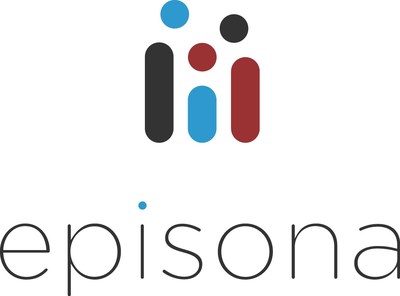

PASADENA, Calif., Oct. 30, 2017 /PRNewswire/ -- Episona Inc., an epigenetics information company focused on reproductive health, announced new data on the associations of sperm DNA methylation patterns (DMPs) and abnormal semen parameters among infertile men, during an oral presentation at the American Society for Reproductive Medicine Scientific Congress and Expo in San Antonio, Texas.

The study, a prospective, controlled, multi-institutional clinical trial of 210 patients, appears to illustrate emerging and robust relationships between sperm DMPs and abnormal semen parameters among infertile couples. Many of the genes implicated by the data have known roles in male infertility in both humans and mice.
When comparing sperm methylation patterns in men with high versus low progressively motile sperm, DMPs were observed in 7962 positions. In 258 genes, at least two loci were significantly differentially methylated; seven genes had more than six significant loci, including the ANKRD11 gene, known to be associated with male infertility, with 10 DMPs.
In men with oligospermia, or low sperm counts, vs. high sperm counts, 4164 DMPs were observed. Differential methylation was detected in three or more positions of 112 genes, and 10 genes showed seven or more DMPs. Among those genes was HDAC4, which is associated with low sperm counts in knockout mice.
In men with 0% vs. >2% normal strict morphology, more than 20,000 DMPs were observed. At least four significant DMPs were found in 548 genes and 13 genes had eight or more DMPs, among which included the gene SLC9A3 with 9 DMPs. Loss of expression of SLC9A3 in mice has been associated with abnormal sperm morphology.
"We are encouraged by the results of this study, which build on our prior work to describe new associations between routine semen parameters and sperm DNA disruptions among infertile men," said Episona Chief Technology Officer Philip J. Uren, PhD. "We expect that sperm epigenetic profiles will be found to correlate closely to abnormal routine semen parameters, providing important information that supports the role of sperm epigenetic testing in infertility treatment."
About Episona Inc.
Episona is an epigenetics information company focused on improving reproductive health outcomes. The company's first commercial product, Seed, evaluates epigenetic changes on DNA to predict the risk of male factor fertility and embryo quality. Epigenetics is the study of the environmental and external modifications to DNA that alter gene expression without changing the DNA sequence. The company was founded in 2013 and is based in Pasadena, CA.
SOURCE Episona Inc.